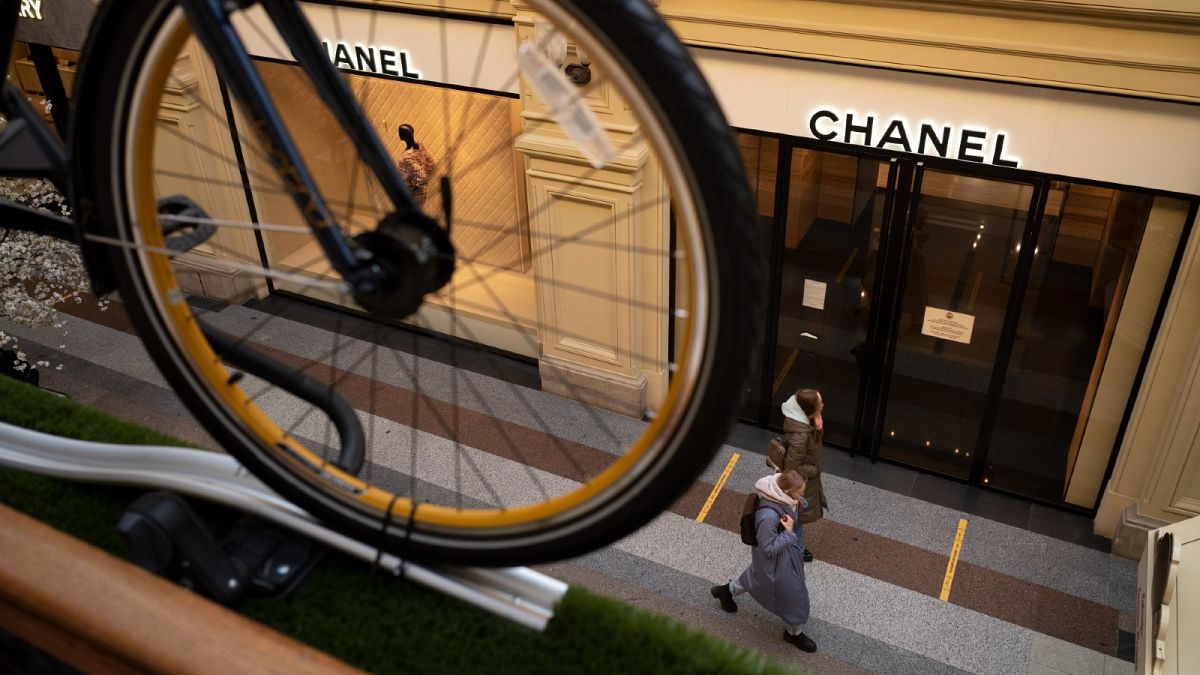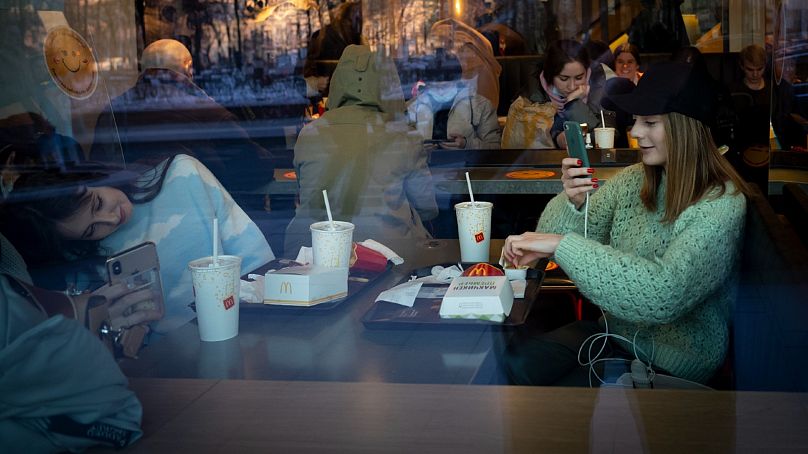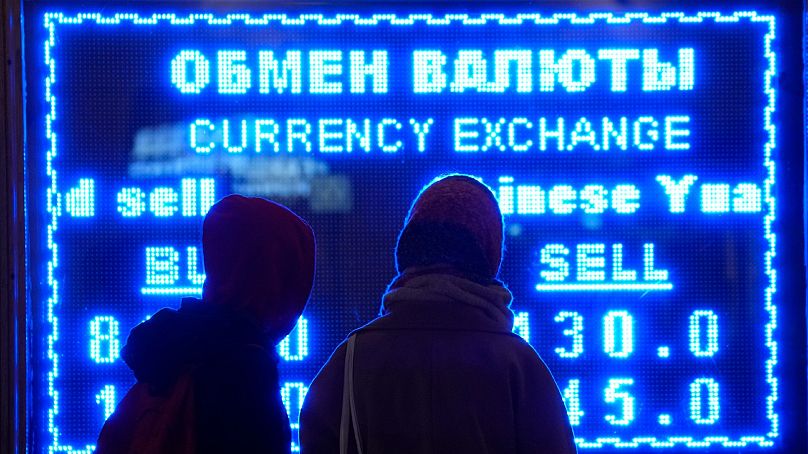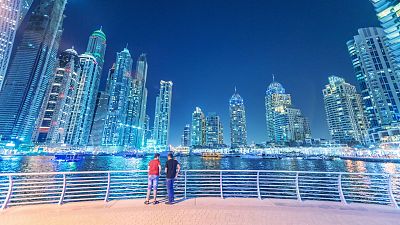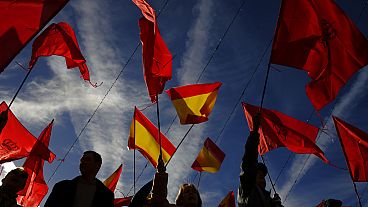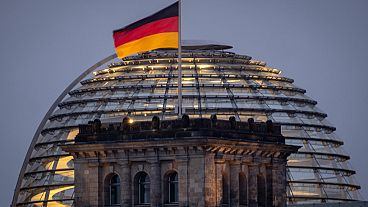How are sanctions impacting everyday life in Russia?
The symbolic shuttering of McDonald's in Russia captured headlines this week because it was one of the first Western brands to open with the writing on the wall for the Soviet Union.
But, in truth, it was just the latest blow in a long line of foreign firms to suspend or stop operations following Moscow's invasion of Ukraine.
In addition to McDonald's temporary closure of its 850 restaurants, Starbucks, KFC, Pizza Hut and Coca-Cola suspended their operations.
Prior to that, Finnish firms Valio (dairy products) and Paulig (coffee) announced the closing of their activities in Russia.
It comes after the West hit Moscow with a broad package of sanctions, including measures against Russia's central bank; cutting some of the country's banks from SWIFT, the global financial transactions system; limiting the supply of materials to Russian manufacturers; reducing energy imports from Russia and closing off airspace to Russian aircraft and airlines.
Price rises and limits on what Russians can buy
The value of Russia's currency, the rouble, has plunged since Putin sent his troops into Ukraine, making it more expensive to import goods.
It took 80 roubles to get $1 on 23 February, the day before the invasion. By 10 March, it was 119 roubles.
Firms that rely on imported goods are said to be in a panic.
Marina Albee, the owner of the Cafe Botanika vegetarian restaurant in Saint Petersburg's historic city centre, has already heard from her fruit and vegetable supplier that prices will be going up 10% to 50%.
The cafe imports dried seaweed and smoked tofu from Japan, mini asparagus from Chile, broccoli from Benin, basmati rice and coconut oil from India.
“We're waiting for the tsunami to hit — the tsunami being the price increases for everything we purchase,” Albee said.
For shoppers, it is a mixed bag so far.
In Saint Petersburg, the large Auchan supermarket, which occupies most of the Leto shopping centre's first floor, has shrunk by half. Some of the space is empty, the shelves are dismantled and many products are gone.
"I heard that Auchan seems to be staying, but I see that some products that I used to buy are gone, it must be the sanctions," said customer Galina "Of course, we have experienced a lot worse, but it is unlikely that life will get better in the near future."
Others in Moscow that Euronews have spoken to say there are no shortages on the shelves.
Prices, however, do appear to be going up. Rosstat, the state statistics agency, said foreign cars and televisions had increased by 15% since the start of March.
The cost of some food is increasing too. Russians are reporting limits on how much sugar, pasta and flour they are able to buy.
Rosstat said the price of sugar had risen by 3.3% in the first week of the month.
Jobs concern
Away from the high street, there are concerns about the impact of sanctions on jobs.
Russia's unemployment rate was 4.4% in January but some estimates say this could double in the coming months.
That's down to several factors, including Western firms pulling out and the impact of supply chain disruption on Russian companies.
"A lot of people will lose their jobs because of the closure of companies, because of the lack of raw materials for production, because of the lack of demand finally, because people will become poorer," Russian economist Andrei Movchan told Euronews.
Natalia, a tutor, works in one of the language schools that offer their services online. Now she fears losing students, who will no longer be able to transfer money to her from abroad.
"The Paypal system that many students used to transfer money to me for lessons no longer works in Russia," she told Euronews.
"The dollar and euro exchange rates are over 100 roubles - of course, everything is getting more expensive, and this can't help the worry
"My lessons are my bread and butter, and if the situation keeps developing this way, foreign languages will not be needed for Russian students at all."
Others have had their worst fears realised. Lisa is 19. She lives with her mother and younger brother in Moscow, where she recently got a job for the Japanese clothing retailer Uniqlo. But the firm announced it would suspend its operations amid Russia's invasion.
"Uniqlo has a very good social package, I liked the job a lot," she told Euronews. "Now that's gone, I won't have any of that, I will have to find a new job."
Lisa says her mother is also unemployed and that it falls upon her young shoulders to support the whole family.
"I'm very worried," she added.
The authorities claim tackling the potential for unemployment to rise is a key priority.
"First let's still hope that not millions of people will be out of work, but fewer," said Kremlin spokesperson Dmitri Peskov. "Indeed, companies are leaving, the government is dealing with this, this is a priority issue - unemployment and anti-crisis measures in the labour market. I think that in the very near future we will also hear from the government about the measures that are planned."
'Russians will be a lot poorer'
Although sanctions have frozen a large portion of Russia’s foreign currency reserves, state finances are in good shape with low debt. When the government does need to borrow, its creditors are mostly domestic banks, not foreign investors who could abandon it in a crisis. The government announced support this week for large companies deemed crucial to the economy.
Estimates of the short-term impact on Russia's economic growth vary widely because more sanctions could come and the fallout from Putin's war are uncertain.
“Russians will be a lot poorer — they won’t have [the] cash to holiday in Turkey or send their kids to school in the West — and even then, because of Putin, they will not be welcome,” said Tim Ash, senior emerging market sovereign analyst at BlueBay Asset Management.
He sees economic growth dropping 10%, while other economists see a drop of as little as 2% or something in between.
Long-term prospects for a growing economy are not good — for enduring reasons that predate the war: A few favoured insiders control major companies and sectors, resulting in a lack of competition and new investment. Russia has failed to diversify away from its dominant oil and gas sector. Per capita income in 2020 was roughly what it was in 2014.
Foreign investment built up over the 30 years since the collapse of the Soviet Union and the jobs it brought are heading for the door. Big corporations like Volkswagen, Ikea and Apple have idled plants or halted sales, while energy giants BP, Exxon and Shell have said they will stop buying Russian oil and gas or exit partnerships there.
On Wednesday, ratings agency Fitch cut its credit rating for the country further into junk status and warned of an imminent default on sovereign debt.
Since facing sanctions over its 2014 seizure of Ukraine's Crimea peninsula, the Kremlin has anticipated such measures would be the West's primary weapon in any conflict. In response, it has devised what Connolly, an associate fellow at the Royal United Services Institute and author of a book on Russia’s response to sanctions, calls “the Kalashnikov economy,” a reference to the Russian military rifle.
It's “a durable, in some ways primitive system," he said, based on low debt, government control of most of the banking system and a central bank able to intervene and prop up the currency and banks.
While trade will fall and fewer goods will be available, the weaker ruble means the Russian government will earn more of its currency for the oil it sells because oil is priced in dollars. With recently higher prices, Connolly estimates Russia is getting 2.7 times the amount of rubles from oil compared with 2019, money that can cover salaries and pensions.
